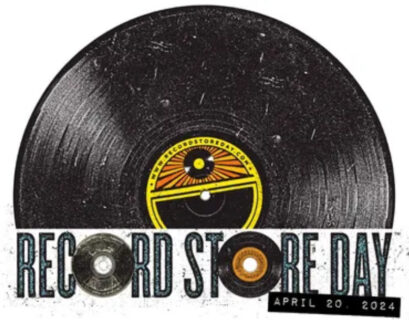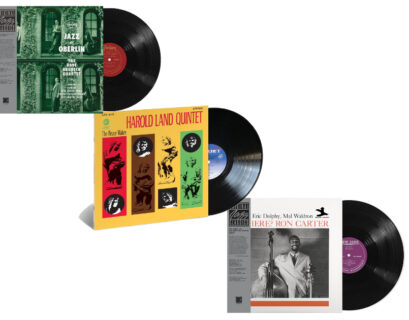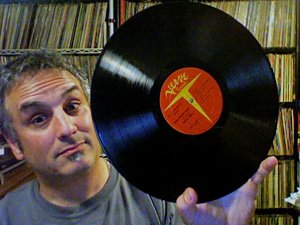It’s the time of year for saving money!
Today in my listening report to the new Vinyl Me, Please box set called The Story Of Herbie Hancock we’ll explore two very different side of this influential artist’s career. If you missed the first portions of this review series, please click here and here and here for Parts 1 & 2 & 3 respectively.
One of the enlightening things about exploring this boxed set is the discovery that Herbie had many albums released only in Japan. The Piano, from 1979, is one of them and artistically I can’t understand why this album was not released in the United States back in the day.
I mean, sure it was a far cry from the jazz-fueled funk of Head Hunters and Man Child, but I would think that some of Herbie’s fans would’ve loved this, his first and only solo acoustic piano recording.
The good news is that we can re-discover this wonderful album today here in the states. According to his website, a “‘Direct-to-Disc’ recording technique was employed, meaning that Hancock had to consecutively play three to four songs live in one take, making sure not to exceed the maximum recording time of 16 minutes. For most musicians, the conditions would be an impediment, but Hancock seized these severe limitations as a challenge and opportunity to focus his creativity.”
The title of The Piano tells you exactly what to expect: Herbie Hancock playing solo in all his glory. Here he tackles many favorite standards including: “My Funny Valentine,” “On Green Dolphin Street” and “Someday My Prince Will Come.” Side two is filled with four equally intimate and mesmerizing originals including “Sonrisa” which later appeared on the 1+1 collection, and “Harvest Time” (which was recorded by Flora Purim’s sister Yana in the late 1980s).
The fidelity on this recording is quite fantastic. I inquired about the source used in making this disc and found out from the Vinyl Me Please folks that while The Piano was indeed recorded direct to disc, a safety tape copy was made back in the day. That original tape copy was transferred to a new tape for the purposes of creating this set and from which Bernie Grundman cut new lacquers for this release. Purists will thus be happy to know this is still an analog recording and while it is arguably a generation down from the master disc, it is still fantastic sounding plus we get the benefit of Mr. Grundman’s mastering expertise to bring out the most from this music. Someday I’ll be curious to hear an original Japanese pressing of this to compare and contrast.
Happily, the album is well centered and dead quiet which is essential for music like this. At risk of sounding like a broken record, I still find it a wonder that this album didn’t get any sort of release in the United States back in the day (especially given that he put out an acoustic piano duets album with Chick Corea around that time).
This is there all digital recording in The Story Of Herbie Hancock boxed set and it is notable for several things. First and foremost, it doesn’t sound or even feel remotely digital. Proof that with proper recording techniques and good mastering digital recordings can sound real good (sorry analog purists!). Secondly, as far as I can tell this marks the first time this 1997 album of duets by Hancock with longtime friend and bandmate Wayne Shorter has appeared on vinyl.
As with the other releases in the set, the quality on this release is very high, pressed on thick dark 180-gram vinyl that is well centered. I can’t emphasize this enough because with music like this where you have pure saxophone and acoustic piano playing, with long held notes and such, any imperfection would ruin the music, causing it to sway in and out of tune.
The performances are exemplary of course, with the two artists playing off one another, inspiring melodic development and even taking some chances which mostly work really well. I’m especially fond of Wayne Shorter’s Satie-esque “Aug San Suu Kyi” but this is one of those albums that is best experienced as a whole… many musical riches will emerge with each listen.
And, that is really the essence of Herbie Hancock’s music, in a way. Timeless, challenging and beautiful sounds that give you rich rewards for the price of your attention. You should listen…


















The Piano was released on CD in the US in 2004. I was also very curious to hear it when it came out here, but I have to admit I thought it left a little to be desired. It’s not one of his more memorable recordings.